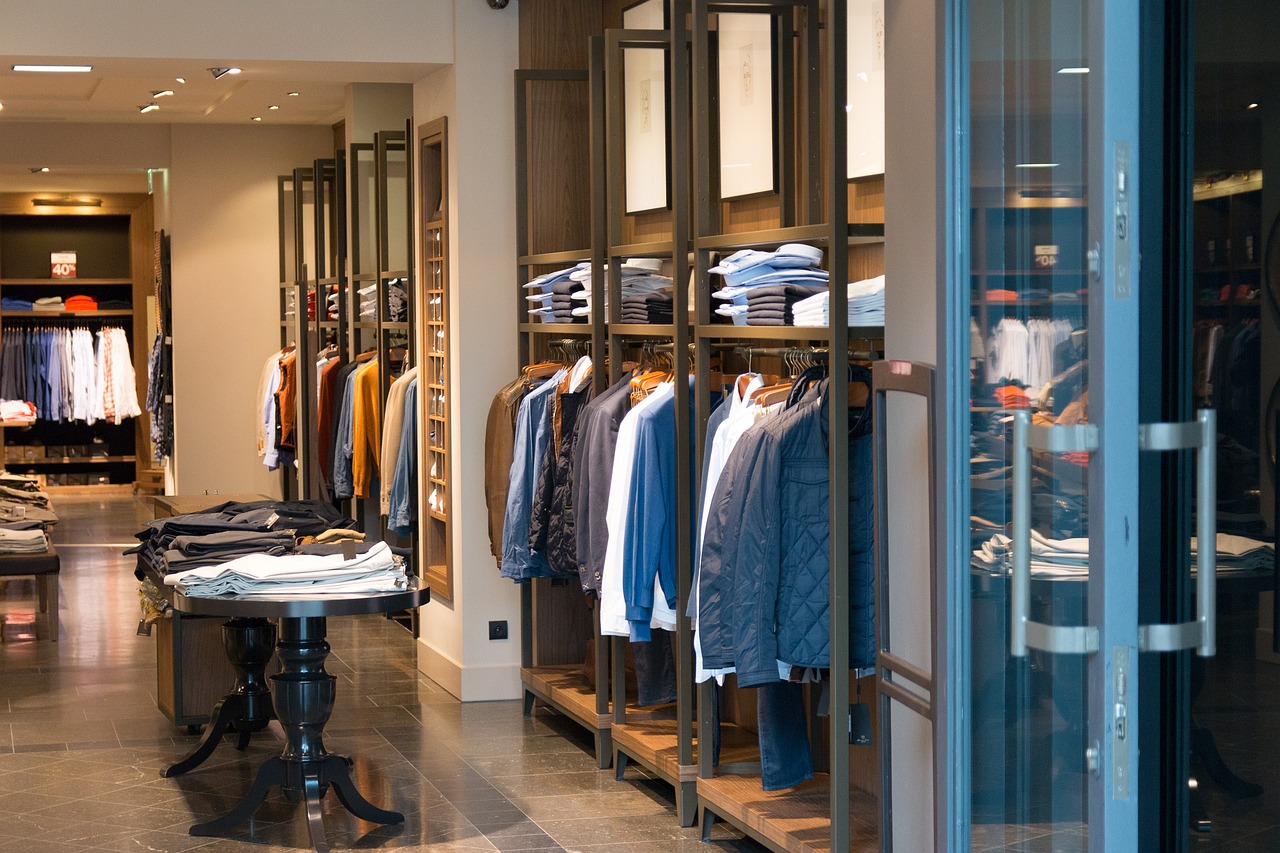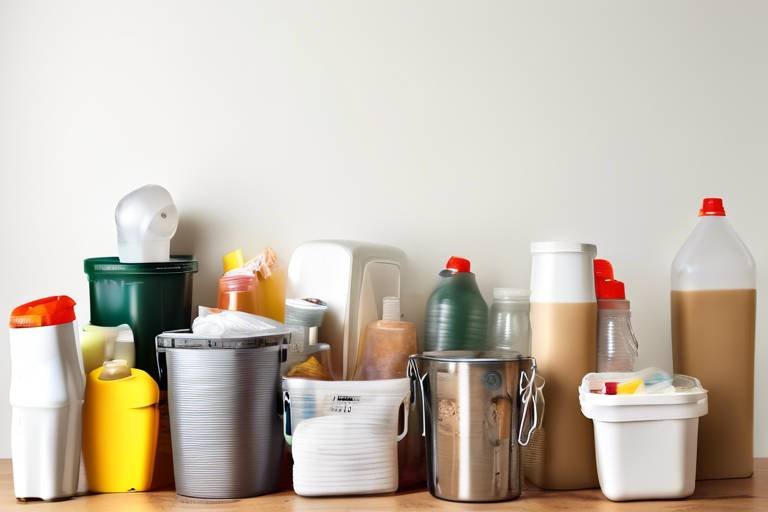The Best Sustainable Companies to Shop From
In a world where environmental concerns are at the forefront of consumer consciousness, shopping sustainably has become more than just a trend; it’s a lifestyle choice that resonates deeply with many. The question is, how do we navigate this sea of options to find the best sustainable companies that align with our values? This article explores leading sustainable companies that prioritize eco-friendly practices, ethical sourcing, and social responsibility, guiding consumers towards brands that not only provide quality products but also contribute positively to the planet.
Sustainability in business refers to the ability of a company to operate in a manner that is environmentally responsible, socially equitable, and economically viable. It’s about creating a balance between meeting the needs of the present without compromising the ability of future generations to meet their own needs. As consumers become increasingly aware of the impact of corporate practices on the environment and society, businesses are stepping up to the plate. They are adopting practices that minimize waste, reduce carbon footprints, and ensure fair labor conditions. This shift is not just beneficial for the planet; it’s also a smart business strategy that can drive customer loyalty and brand reputation.
When it comes to fashion, the industry has been notorious for its environmental impact. However, a new wave of brands is revolutionizing the sector by embracing sustainable materials and ethical labor practices. Companies like Patagonia and Eileen Fisher are leading the charge, utilizing organic cotton, recycled materials, and fair trade practices. These brands not only offer stylish options but also ensure that their production processes are as green as possible. Imagine wearing a piece of clothing that not only looks good but also does good for the world—now that’s a win-win!
Your home should be a sanctuary, and choosing eco-friendly home goods can enhance that experience. Brands like Seventh Generation and Method offer cleaning products made from plant-based ingredients that are safe for both your family and the environment. Additionally, furniture companies such as West Elm are committed to sustainable sourcing practices, ensuring that the materials used are responsibly harvested. By opting for these eco-friendly products, you’re not just beautifying your space; you're also making a conscious choice to reduce your household waste and carbon footprint.
Eating organic is another vital aspect of sustainable living. Brands like Organic Valley and Nature's Path are committed to sustainable agriculture practices that promote health and environmental stewardship. These companies focus on producing food that is not only free from harmful chemicals but also supports biodiversity and soil health. When you choose organic, you’re not just nourishing your body; you’re also supporting farming practices that are kinder to the planet. It’s like planting a seed for a better future with every bite you take.
The tech industry is also stepping up its game when it comes to sustainability. Companies like Apple and Google are leading the charge with energy-efficient products and responsible e-waste management initiatives. They are investing in renewable energy sources and ensuring that their supply chains are as sustainable as possible. Think of it this way: every time you choose a green tech product, you’re not just getting the latest gadget; you’re also making a statement about the kind of future you want to support.
In the beauty industry, brands like Lush and Ethique are setting the standard for ethical beauty solutions. These companies emphasize natural ingredients, cruelty-free practices, and sustainable packaging. It’s a breath of fresh air to know that you can pamper yourself while being kind to the planet. Imagine using a shampoo bar that not only smells divine but also comes in minimal packaging—talk about a guilt-free indulgence!
Consumer choices are powerful. Every time you decide to purchase from a sustainable brand, you’re sending a message to companies about what matters to you. It’s like casting a vote for a greener future. When consumers demand transparency and sustainability, businesses are compelled to change their practices. This shift can lead to a ripple effect, encouraging more companies to adopt sustainable methods. Your buying decisions can drive positive change in the industry, making your role as a consumer more impactful than you might realize.
As we look to the future, several trends are emerging in sustainable business practices. Innovations in technology are paving the way for more efficient production methods, while shifts in consumer behavior are pushing brands to prioritize sustainability. For instance, the rise of the circular economy—where products are designed for reuse and recycling—could reshape the way we think about consumption. Additionally, as more consumers become aware of their purchasing power, we can expect to see a surge in demand for transparency and ethical practices across all industries.
- What makes a company sustainable? A sustainable company prioritizes eco-friendly practices, ethical sourcing, and social responsibility.
- How can I identify sustainable brands? Look for certifications like Fair Trade, Organic, or B Corp, and research their practices.
- Why is sustainable shopping important? Sustainable shopping helps reduce environmental impact and supports ethical business practices.

Understanding Sustainability in Business
Sustainability in business is more than just a buzzword; it represents a fundamental shift in how companies operate, aiming to create a balance between profitability and the well-being of our planet. At its core, sustainability refers to the ability to meet the needs of the present without compromising the ability of future generations to meet their own needs. This concept encompasses a wide range of practices and principles that prioritize the environment, social equity, and economic viability.
In today's world, where environmental crises loom large, the importance of sustainable practices has never been more evident. Companies are increasingly recognizing that their operations can have significant impacts on both the environment and society. By adopting sustainable practices, businesses can reduce their carbon footprints, conserve natural resources, and contribute positively to their communities. This shift is not only beneficial for the planet but also enhances brand loyalty and consumer trust, as more individuals seek to support companies that align with their values.
To better understand sustainability in business, it's essential to consider the three pillars of sustainability: environmental protection, social responsibility, and economic growth. These pillars serve as a framework for businesses to evaluate their operations and make informed decisions. Here’s a brief overview:
| Pillar | Description |
|---|---|
| Environmental Protection | Focuses on minimizing harm to the environment through responsible resource management and pollution reduction. |
| Social Responsibility | Involves ethical practices that benefit society, including fair labor practices and community engagement. |
| Economic Growth | Ensures that business activities are profitable while also being sustainable, creating long-term value. |
Moreover, the impact of corporate practices on the environment and society is profound. For instance, companies that invest in renewable energy sources can significantly reduce their greenhouse gas emissions. Similarly, businesses that prioritize ethical sourcing not only support fair labor practices but also contribute to local economies. By integrating sustainability into their core strategies, companies can drive innovation and create competitive advantages in an increasingly eco-conscious market.
In conclusion, understanding sustainability in business is vital for both current and future success. As consumers become more informed and demand greater accountability, businesses that embrace sustainability will not only thrive but also play a crucial role in shaping a greener, more equitable world. The journey towards sustainability is not just a trend; it's a necessary evolution for businesses aiming to make a lasting impact.
- What is sustainability in business? Sustainability in business refers to practices that meet present needs without compromising future generations, focusing on environmental, social, and economic factors.
- Why is sustainability important? Sustainability is important because it helps protect the environment, promotes social equity, and ensures long-term economic viability for businesses and communities.
- How can businesses become more sustainable? Businesses can become more sustainable by adopting eco-friendly practices, sourcing materials responsibly, and engaging with their communities.

Top Sustainable Fashion Brands
When it comes to fashion, the industry has often been criticized for its **environmental impact**. However, a wave of change is sweeping through, as brands are stepping up to prioritize sustainability. These top sustainable fashion brands are not just about looking good; they are about making a positive impact on the planet. Imagine wearing a piece of clothing that not only looks fabulous but also tells a story of **ethical sourcing** and **environmental responsibility**. Sounds appealing, right? Let’s dive into the world of sustainable fashion and explore some brands that are leading the charge.
One of the standout brands in this movement is Patagonia. Known for its commitment to the environment, Patagonia uses **recycled materials** and promotes fair labor practices. Their motto, “**We’re in business to save our home planet**,” reflects their dedication to sustainability. They even encourage customers to repair their gear instead of replacing it, which is a fantastic initiative to reduce waste. This brand not only sells clothing but also inspires a lifestyle of **conservation** and **responsibility**.
Another brand making waves is Eileen Fisher. With a focus on **timeless designs** and **sustainable fabrics**, Eileen Fisher has built a reputation for quality and ethics. Their commitment to **renewable energy** and **fair trade practices** sets a high standard in the fashion industry. They also have a “Renew” program that takes back old garments, giving them new life and reducing landfill waste. This approach not only supports sustainability but also encourages consumers to think twice about their purchasing habits.
Then there’s Reformation, a brand that has become synonymous with trendy, eco-friendly fashion. They use **sustainable materials** like TENCEL and recycled fabrics, and they’re transparent about their environmental impact, even providing a **“Sustainability Score”** for each product. This score helps consumers make informed choices, proving that eco-friendly doesn’t have to mean compromising on style. Reformation is a perfect example of how fashion can be both **chic** and **conscious**.
Let’s not forget about Allbirds. Known for their ultra-comfortable footwear, Allbirds uses **natural materials** such as merino wool and eucalyptus tree fiber. Their commitment to reducing their carbon footprint is impressive, and they even offer a **carbon footprint calculator** for consumers to understand the impact of their purchases. Allbirds is reshaping the way we think about footwear, showing that comfort and sustainability can go hand in hand.
Lastly, we have Everlane, a brand that prides itself on **radical transparency**. Everlane discloses the true cost of their products, from materials to labor, allowing consumers to see exactly where their money goes. Their commitment to ethical factories and sustainable practices makes them a favorite among conscious shoppers. With a focus on **minimalism** and **quality**, Everlane proves that sustainable fashion doesn’t have to be complicated.
These brands are just the tip of the iceberg when it comes to sustainable fashion. As consumers become more aware of the impact of their choices, the demand for **eco-friendly** and **ethically produced** clothing continues to rise. By supporting these brands, you’re not just making a fashion statement; you’re also contributing to a larger movement towards a more sustainable future. So, next time you shop for clothes, think about the story behind the brand and the impact your choices can have on the world.
Q: What makes a fashion brand sustainable?
A: A sustainable fashion brand prioritizes eco-friendly materials, ethical labor practices, and transparent production processes. They aim to reduce their environmental impact and promote social responsibility.
Q: How can I identify sustainable fashion brands?
A: Look for brands that provide information about their sourcing practices, use of materials, and labor conditions. Certifications like Fair Trade or GOTS (Global Organic Textile Standard) can also indicate a commitment to sustainability.
Q: Is sustainable fashion more expensive?
A: While sustainable fashion can sometimes have a higher upfront cost, it often reflects the quality and ethical practices involved in production. Additionally, investing in durable pieces can save money in the long run.
Q: Can I find sustainable fashion options for all occasions?
A: Yes! Many sustainable brands offer a wide range of clothing options for various occasions, from casual wear to formal attire, ensuring you can dress sustainably no matter the event.

Eco-Friendly Home Goods
In a world where our daily choices can significantly impact the environment, have emerged as a beacon of hope for conscious consumers. These products are not just about aesthetics; they reflect a commitment to sustainability that resonates with many of us. Have you ever thought about how your home can be a sanctuary for both comfort and the planet? By choosing sustainable home goods, you’re not just decorating your space; you’re making a statement about your values.
When we talk about eco-friendly home goods, we’re referring to items that are made from sustainable materials, produced through ethical practices, and designed to minimize environmental impact. For example, consider furniture crafted from reclaimed wood. Not only does it bring a unique charm to your home, but it also reduces the demand for new timber, which can lead to deforestation. Imagine bringing a piece of history into your living room while also protecting our forests!
Another area where sustainability shines is in home textiles. Brands are now producing bedding, towels, and curtains using organic cotton or bamboo, which are not only softer on the skin but also grown without harmful pesticides. This shift towards organic materials is crucial, as conventional cotton farming is one of the most pesticide-intensive crops in the world. By opting for organic, you’re not only caring for your health but also supporting farming practices that are kinder to our planet.
Moreover, let’s not forget about the importance of reducing waste in our homes. Many companies now offer products that are designed to last longer and be more durable, which ultimately cuts down on landfill waste. For instance, reusable kitchen items like beeswax wraps or stainless steel straws are great alternatives to single-use plastics. By making small changes like these, we can collectively make a big difference. It’s like a ripple effect; your choices can inspire others to follow suit!
In addition to these tangible products, the concept of sustainable design is gaining traction. This approach not only considers the materials used but also the entire lifecycle of a product. For example, companies are now designing furniture that can be easily disassembled and recycled at the end of its life, ensuring that nothing goes to waste. This is a game-changer in the home goods industry, as it encourages a circular economy where products are reused and repurposed rather than discarded.
So, where can you find these eco-friendly home goods? Many brands are stepping up to the plate, offering a range of sustainable options. From local artisans to established companies, the market is rich with choices. It’s essential to do your research and look for certifications or labels that indicate a commitment to sustainability. For instance, brands that are certified by organizations like the Forest Stewardship Council (FSC) or the Global Organic Textile Standard (GOTS) are often more trustworthy in their claims.
As we continue to navigate our way through consumer choices, remember that every little decision counts. By investing in eco-friendly home goods, you’re not just enhancing your living space; you’re contributing to a healthier planet for future generations. It’s a win-win situation! So, next time you’re shopping for your home, ask yourself: is this item aligned with my values? Your home can be a reflection of who you are, and it can also be a haven for sustainability.
- What are eco-friendly home goods? Eco-friendly home goods are products made from sustainable materials and produced using ethical practices that minimize environmental impact.
- How can I tell if a product is truly eco-friendly? Look for certifications like FSC for wood products or GOTS for textiles, which indicate a commitment to sustainability.
- Are eco-friendly products more expensive? While some eco-friendly products may have a higher upfront cost, they often provide better durability and can save you money in the long run.
- Can I find eco-friendly home goods locally? Yes! Many local artisans and shops offer sustainable home goods, so check out your local markets or specialty stores.

Organic Food Brands
In a world increasingly aware of the impact of agriculture on our planet, are stepping up to the plate—literally! These brands are not just about selling food; they are champions of a movement that prioritizes health, sustainability, and environmental stewardship. Imagine biting into a juicy, fresh apple knowing that it was grown without harmful pesticides or synthetic fertilizers. That's the promise of organic food! But what does it really mean for a brand to be organic, and why should you care?
Organic food brands focus on sustainable agriculture practices that work in harmony with nature. This means using methods that enhance biodiversity, improve soil health, and reduce pollution. By choosing organic, consumers are not only supporting healthier food options but also advocating for farming practices that protect our ecosystems. Consider this: organic farming often utilizes crop rotation, natural pest control, and composting. These techniques not only yield healthier food but also contribute to a more sustainable environment.
When you purchase organic products, you're making a conscious choice that impacts your health and the planet. Many organic brands are committed to transparency, providing consumers with clear information about sourcing and production methods. Some of the most popular organic food brands include:
- Nature's Path - Known for its organic cereals and granola, this brand emphasizes sustainability in its farming practices.
- Stonyfield Organic - A leader in organic dairy, Stonyfield focuses on pasture-based farming, ensuring that their cows are treated ethically.
- Earthbound Farm - Specializing in organic produce, they are dedicated to sustainable farming and reducing environmental impact.
But the impact of these brands goes beyond just healthy eating. By choosing organic, you are also supporting local farmers and communities that prioritize ethical practices. Many organic brands source their ingredients from local farms, which not only reduces transportation emissions but also supports the local economy. It’s like planting a seed of change—your purchase can help cultivate a more sustainable food system.
Moreover, organic food brands often engage in various initiatives aimed at educating consumers about the benefits of organic eating. They may host workshops, provide resources for sustainable living, or partner with environmental organizations to promote awareness. This commitment to education empowers consumers to make informed choices, leading to a ripple effect that can drive broader change in the food industry.
As you explore the world of organic food brands, consider the importance of certifications. Look for labels such as USDA Organic or Non-GMO Project Verified. These certifications ensure that the products you are buying meet strict standards for organic farming and production. It's like having a badge of honor that assures you of the brand's commitment to quality and sustainability.
In conclusion, choosing organic food brands is more than just a dietary preference; it’s a lifestyle choice that reflects your values. By opting for organic, you are voting with your wallet for a healthier planet, better farming practices, and a brighter future for generations to come. So, the next time you’re at the grocery store, take a moment to consider the impact of your choices. Remember, every bite counts!
1. What does "organic" mean?
Organic refers to food products that are grown and processed without the use of synthetic fertilizers, pesticides, and genetically modified organisms (GMOs). Organic farming practices promote ecological balance and biodiversity.
2. Are organic foods healthier than conventional foods?
While organic foods are often fresher and free from harmful chemicals, the health benefits can vary. However, many consumers choose organic for the peace of mind that comes from knowing their food is produced sustainably.
3. How can I identify organic products in the store?
Look for labels such as "USDA Organic" or "Non-GMO Project Verified." These certifications indicate that the product meets strict organic standards.
4. Are organic foods more expensive?
Yes, organic foods can be more expensive due to higher production costs and more labor-intensive farming methods. However, many consumers believe the benefits outweigh the costs.
5. Can I grow my own organic food?
Absolutely! Growing your own organic garden can be a rewarding and sustainable way to enjoy fresh produce while knowing exactly how it was grown.

Green Technology Companies
In a world where technology and sustainability are often seen as opposing forces, are proving that innovation can go hand in hand with environmental responsibility. These companies are on a mission to reshape our understanding of technology's role in our lives, focusing not just on efficiency and profit, but also on the health of our planet. Imagine a future where your smartphone not only connects you to your friends but also contributes to a cleaner environment. This is the vision that many green tech companies are striving to achieve.
One of the key areas where these companies excel is in energy efficiency. By developing products that consume less energy, they help reduce the overall carbon footprint associated with technology use. For instance, consider the advancements in LED lighting technology. These lights use a fraction of the energy compared to traditional incandescent bulbs, which not only saves consumers money on their electricity bills but also significantly cuts down on greenhouse gas emissions. It's a win-win situation!
Moreover, green technology companies are also making strides in responsible e-waste management. With the rapid pace of technological advancement, electronic waste has become a pressing issue. Companies like Apple and Dell have implemented take-back programs that allow consumers to return old devices for recycling. This not only keeps harmful materials out of landfills but also promotes a circular economy where materials can be reused and repurposed. It's like giving your old gadgets a second life!
Another exciting development in the green tech sector is the rise of renewable energy initiatives. Companies such as Tesla are at the forefront of this movement, producing electric vehicles and solar energy products that reduce reliance on fossil fuels. The shift towards renewable energy sources is crucial for mitigating climate change and creating a sustainable future. Just think about it: every time you power your home with solar energy or drive an electric car, you're making a conscious choice to support our planet.
As consumers, we have the power to influence these companies by supporting those that prioritize sustainability. When we choose to buy from green technology companies, we send a strong message that we value environmental responsibility. This, in turn, encourages more businesses to adopt sustainable practices. It's like casting a vote with your wallet—every purchase counts!
In summary, green technology companies are leading the charge towards a more sustainable future. By focusing on energy efficiency, responsible e-waste management, and renewable energy initiatives, they are redefining what it means to be a tech company in the modern age. So the next time you're in the market for a new gadget or energy solution, consider supporting these innovative companies that are not just changing the game, but also protecting our planet for future generations.
- What is green technology? Green technology refers to products, services, and processes that use renewable materials and energy sources, reduce emissions and waste, and have a minimal impact on the environment.
- How can I identify a green technology company? Look for companies that prioritize sustainability in their practices, such as using renewable energy, implementing recycling programs, and offering energy-efficient products.
- Why is green technology important? Green technology is crucial for reducing our carbon footprint, conserving natural resources, and combating climate change, ultimately leading to a healthier planet.

Beauty Brands with a Conscience
In today's world, where consumers are more conscious than ever about their choices, are making waves. These companies are not just about looking good; they are about doing good. Imagine a world where your skincare routine not only enhances your beauty but also contributes positively to the planet. Sounds appealing, right? Well, that's exactly what these brands aim to achieve. By prioritizing natural ingredients, cruelty-free practices, and sustainable packaging, they are reshaping the beauty industry, one product at a time.
Many of these brands are committed to using only ethical ingredients. This means sourcing components that are not only safe for your skin but also harvested responsibly. For instance, brands like RMS Beauty and 100% Pure focus on using organic and wildcrafted ingredients, ensuring that their products are free from harmful chemicals and toxins. This commitment to purity is not just a marketing gimmick; it's a philosophy that drives their entire operation.
Moreover, the importance of cruelty-free practices cannot be overstated. Many beauty brands have taken a stand against animal testing, opting instead for innovative methods to ensure their products are safe and effective. Companies like Too Faced and Urban Decay have made significant strides in this area, proving that you can create high-quality cosmetics without compromising your values. By choosing these brands, consumers are not just purchasing beauty products; they are supporting a movement towards ethical treatment of animals.
Packaging is another area where conscious beauty brands shine. Traditional beauty products often come in plastic containers that contribute to environmental degradation. In contrast, brands like Lush and Ethique are leading the charge with sustainable packaging solutions. Lush, for example, offers a range of products that are naked, meaning they come without packaging at all. Ethique takes it a step further by producing solid bars for shampoos and conditioners, drastically reducing plastic waste. These innovative approaches not only appeal to eco-conscious consumers but also set a new standard for the industry.
As consumers, we hold the power to drive change through our purchasing decisions. By opting for beauty brands that prioritize sustainability and ethical practices, we are sending a clear message that we care about the impact of our choices. The ripple effect of these informed decisions can lead to significant changes in the industry, encouraging even more brands to adopt sustainable practices. It's like planting a seed; with time and care, it can grow into a flourishing tree that benefits everyone.
In summary, beauty brands with a conscience are paving the way for a more sustainable and ethical future in the beauty industry. By focusing on natural ingredients, cruelty-free practices, and sustainable packaging, these brands are not just enhancing our beauty; they are also nurturing our planet. So the next time you're shopping for beauty products, consider choosing a brand that aligns with your values. After all, beauty should not come at the expense of our world.
- What does "cruelty-free" mean? It means that the products were not tested on animals at any stage of the production process.
- Are natural ingredients always better for my skin? While many natural ingredients are beneficial, it's essential to research and ensure they are suitable for your skin type.
- How can I identify sustainable beauty brands? Look for certifications, ingredient transparency, and brands that actively promote ethical practices.
- Why is sustainable packaging important? Sustainable packaging reduces waste and minimizes the environmental impact associated with traditional packaging materials.

Impact of Consumer Choices
In today's world, the power of the consumer is more significant than ever. Every purchase we make sends a message to companies about what we value. Imagine your shopping cart as a voting ballot; each item you choose reflects your preferences and priorities. When we opt for sustainable products, we are not just buying goods; we are endorsing a vision for a greener, more ethical future. This phenomenon is not just a fleeting trend; it represents a fundamental shift in how businesses operate and how they perceive their responsibilities toward the planet and society.
Consider this: when consumers increasingly demand eco-friendly products, companies are compelled to adapt. This shift can lead to a ripple effect throughout entire industries. For example, when a significant number of consumers choose brands that prioritize sustainability, it encourages others to follow suit. As a result, businesses that may have previously overlooked sustainable practices may start to implement changes to meet consumer expectations. This is the essence of the power of informed purchasing decisions.
Moreover, consumer choices can drive innovation. Companies are constantly looking for ways to differentiate themselves in a crowded marketplace. When consumers show a clear preference for sustainable options, businesses are motivated to invest in research and development to create new, eco-friendly products. This not only benefits the environment but also opens up new markets and opportunities for growth. It's a win-win situation that demonstrates how our choices can stimulate positive change.
To illustrate this impact, let's take a look at some statistics that reflect consumer behavior:
| Year | Percentage of Consumers Preferring Sustainable Brands |
|---|---|
| 2018 | 55% |
| 2019 | 60% |
| 2020 | 65% |
| 2021 | 70% |
This table highlights a growing trend: as awareness of sustainability issues rises, so does the percentage of consumers who prefer brands that align with their values. By 2021, a staggering 70% of consumers expressed a preference for sustainable brands, showcasing the undeniable influence of consumer choices.
However, it’s essential to recognize that consumer choices also come with challenges. Not all brands that market themselves as "green" are genuinely sustainable. This phenomenon, known as greenwashing, can mislead consumers who are trying to make responsible choices. Therefore, it’s crucial for consumers to conduct thorough research and support brands that are transparent about their practices. By doing so, we can ensure that our purchasing power leads to genuine sustainability rather than mere marketing ploys.
In conclusion, the impact of consumer choices on corporate sustainability practices is profound. Our decisions can shape the market, drive innovation, and encourage companies to adopt more ethical and sustainable practices. By being mindful of what we buy and supporting brands that prioritize sustainability, we not only benefit ourselves but also contribute to a healthier planet and a more equitable society. Remember, every time you shop, you're casting a vote for the kind of world you want to see. So, choose wisely!
- What is greenwashing? Greenwashing refers to the practice of companies misleading consumers regarding the environmental practices of their products or the sustainability of their brand.
- How can I identify truly sustainable brands? Look for transparency in sourcing, certifications (like Fair Trade or USDA Organic), and a commitment to sustainable practices in their operations.
- Why should I care about sustainable shopping? Sustainable shopping helps reduce environmental impact, supports ethical labor practices, and promotes a healthier planet for future generations.

Future Trends in Sustainable Business
As we venture further into the 21st century, the landscape of sustainable business is evolving at an unprecedented pace. Companies are not just adopting sustainable practices; they are reimagining their entire business models to align with the growing demand for eco-conscious products and services. One of the most significant trends is the increasing integration of circular economy principles. This approach encourages businesses to design products that can be reused, repaired, or recycled, thereby minimizing waste and reducing the strain on our planet's resources. Imagine a world where your favorite gadgets can be returned to their manufacturers for refurbishment instead of ending up in a landfill. Isn't that a refreshing thought?
Moreover, consumers are becoming more informed and vocal about their purchasing decisions. This shift is leading companies to prioritize transparency in their supply chains. Brands that openly share their sourcing practices and labor conditions are likely to gain consumer trust and loyalty. In fact, a recent survey indicated that over 70% of consumers prefer to buy from brands that are transparent about their sustainability efforts. This trend not only drives competition among companies but also fosters a culture of accountability within industries.
Another exciting trend is the rise of sustainable technology. Innovations such as energy-efficient appliances, smart home systems, and renewable energy solutions are becoming mainstream. Companies are investing heavily in research and development to create products that not only meet consumer needs but also contribute positively to the environment. For instance, solar panels and wind turbines are now more accessible than ever, allowing homeowners to harness renewable energy sources and reduce their carbon footprints. It's like turning your house into a mini power plant—how cool is that?
Furthermore, the concept of social entrepreneurship is gaining traction. Businesses that prioritize social impact alongside profit are becoming more prevalent. These companies often tackle pressing social issues, such as poverty, education, and health care, while maintaining sustainable practices. This dual focus on profit and purpose resonates deeply with consumers, particularly millennials and Gen Z, who are more inclined to support brands that align with their values. It's not just about buying a product anymore; it's about being part of a movement.
Lastly, the future of sustainable business is also intertwined with the regulatory landscape. Governments worldwide are implementing stricter regulations aimed at reducing carbon emissions and promoting sustainable practices. Companies that proactively adapt to these regulations will not only avoid penalties but also position themselves as leaders in sustainability. This shift is akin to a race where the early adopters of sustainable practices are not just surviving but thriving, setting the pace for others to follow.
In conclusion, the future of sustainable business is bright and full of potential. As consumer awareness grows, technology advances, and regulations tighten, companies that embrace sustainability will not only contribute to a healthier planet but also enjoy a competitive edge in the marketplace. It's an exciting time to be a conscious consumer, as every purchase can make a difference. So, the next time you shop, consider the sustainability of your choices—after all, it's a small step that can lead to monumental change.
- What is a circular economy? A circular economy is an economic system aimed at eliminating waste and the continual use of resources. It contrasts with a linear economy, which follows a 'take, make, dispose' model.
- How can I identify sustainable brands? Look for certifications such as Fair Trade, Organic, or B Corp. Brands that are transparent about their sourcing and production practices are also good indicators of sustainability.
- What role do consumers play in promoting sustainability? Consumers have significant power. By choosing to support sustainable brands and products, they can influence companies to adopt greener practices.
- Are sustainable products more expensive? While some sustainable products may have a higher upfront cost, they often provide long-term savings through durability and reduced environmental impact.
Frequently Asked Questions
-
What does it mean for a company to be sustainable?
Sustainability in business refers to practices that meet the needs of the present without compromising the ability of future generations to meet their own needs. This includes using eco-friendly materials, ethical labor practices, and maintaining a balance between economic growth, environmental care, and social well-being.
-
Why should I choose to shop from sustainable companies?
Shopping from sustainable companies helps reduce your carbon footprint and supports ethical practices. By choosing brands that prioritize sustainability, you contribute to a healthier planet and encourage businesses to adopt more eco-friendly methods. It's like casting a vote for the kind of world you want to live in!
-
Are sustainable products more expensive?
While some sustainable products may have a higher upfront cost due to ethical sourcing and production methods, they often offer long-term savings and benefits. Think of it as an investment in quality and longevity, rather than just a purchase. Plus, you're supporting a better future!
-
How can I identify truly sustainable brands?
Look for certifications like Fair Trade, USDA Organic, or B Corp. Additionally, research the company's practices, such as their sourcing methods, transparency, and commitment to reducing waste. It’s important to be an informed consumer, just like reading the label on your favorite snack!
-
What are some examples of sustainable fashion brands?
Some top sustainable fashion brands include Patagonia, Reformation, and Eileen Fisher. These companies are known for their commitment to using sustainable materials and ethical labor practices, making them great choices for eco-conscious shoppers.
-
Can I find sustainable options for everyday products?
Absolutely! Many companies offer eco-friendly alternatives for everyday items, from cleaning supplies to personal care products. Brands like Seventh Generation and Method focus on creating household goods that are safe for the environment and your family.
-
How do consumer choices impact sustainability?
Consumer choices play a crucial role in driving corporate sustainability. When you choose to buy from sustainable brands, you send a message that there is a demand for ethical practices. This can influence companies to adopt greener policies and practices, creating a ripple effect in the industry.
-
What are some future trends in sustainable business?
Future trends in sustainable business include increased use of renewable energy, innovations in sustainable materials, and a greater emphasis on circular economy practices. As consumers become more aware of environmental issues, businesses will likely adapt to meet these changing demands.



















